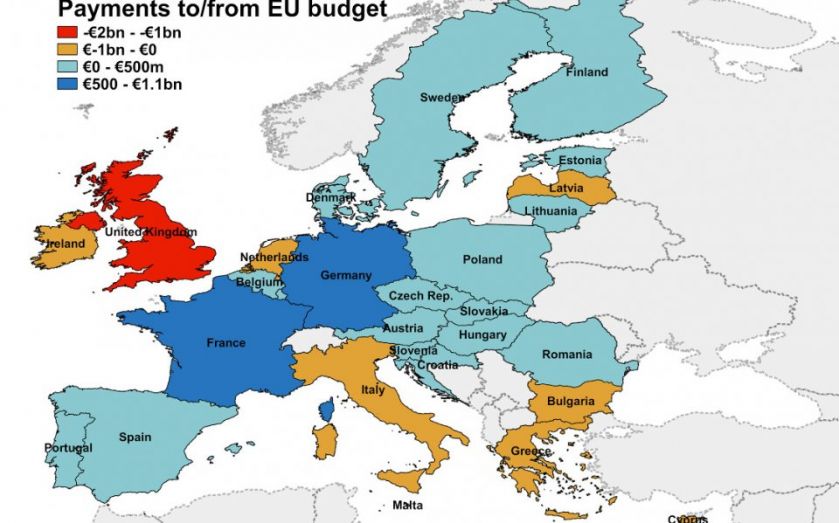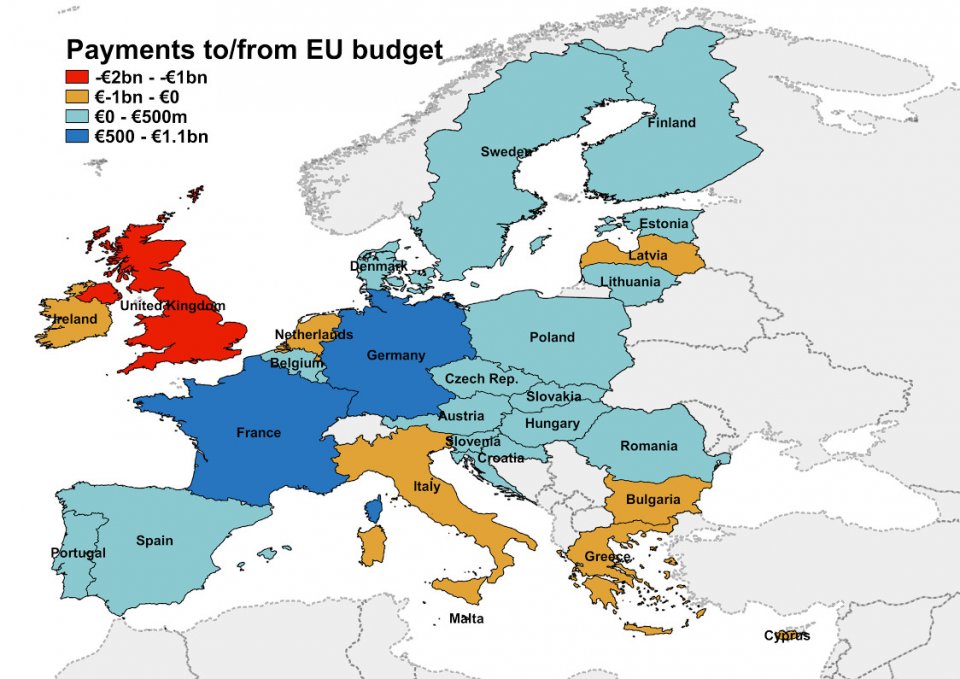EU budget 2014: How much has the UK been asked to pay compared to other member states?

David Cameron appeared as shocked as the rest of us by the news that the European Commission has charged the UK with a whopping €2.1bn (£1.7bn) bill.
The EU Commission is demanding the UK make the extra contribution to the EU budget due to the relative health of the country’s economy in comparison to the rest of its member states.
Yesterday David Cameron was scathing in his criticism of the EU Commission's conduct. He insisted he “won’t be paying” a bill he described as “not acceptable”.
Not only is the UK being asked to stump up more cash than any other nation, but other large EU economies such as France and Germany will be the beneficiaries, receiving rebates of €1bn and €779m respectively.
The map below shows the biggest winners and losers in the EU Commission’s recalculated budget contributions. Minus figures indicate those countries tasked with additional payments, positive indicates a rebate.

No wonder the Prime Minister has been so bullish in response.
He said:
It’s a €2bn bill. It gets presented with a month to go. That is not an acceptable way to behave and it’s not an acceptable sum of money.
I am not paying that bill on December 1. If people think I am, they have got another think coming.
The UK has been asked to put more back into the EU budget than every other country tasked with doing so put together. Eight other countries, including Ireland, Italy and Greece, have been commanded to hand over €1.1bn collectively.
Cameron’s stern stance is unsurprisingly being backed by the Netherlands and Italy. Speaking at the end of a two day European Council meeting, Cameron quoted Italian prime minister Matteo Renzi as saying: “This is not a figure, this is a lethal weapon”.
However, perhaps equally predictable is the response in favour of the recalculations from beneficiaries such as Germany. The Times has reported that German chancellor Angela Merkel yesterday told leaders to play by the EU Commission’s rules.
The money paid by the UK and others will go towards those adjudged to have paid too much, with France in line for the biggest bonus.
The EU Commission determines budget contributions based on the size of a country’s gross national income (GNI) compared to the size of their economy.
It is believed the demand for increased UK payments stems from the £74bn that was added to its GNI in 2013, following the ONS’ decision to bring their calculations in line with Eurostat.
With Cameron incensed and refusing to pay the bill, it remains possible the EU Commission could lower their demands before 1 December. The commission’s letter to the member states says it will inform them of the final, confirmed amounts in November.